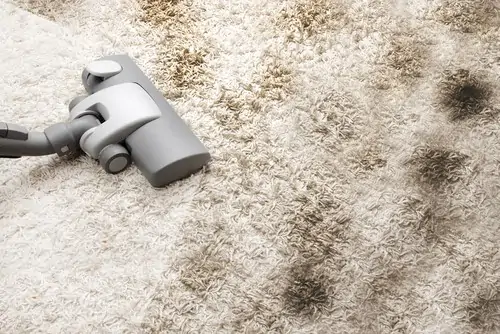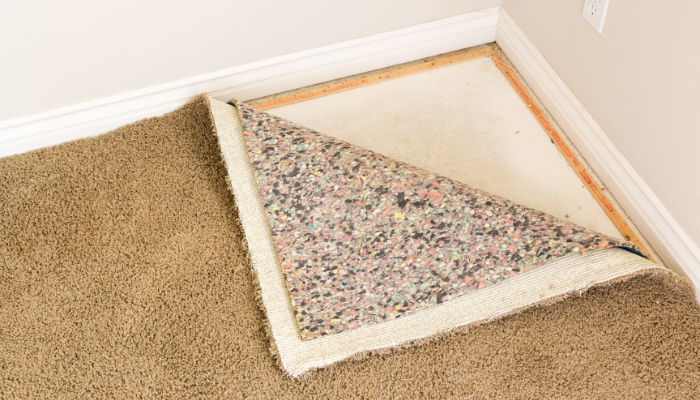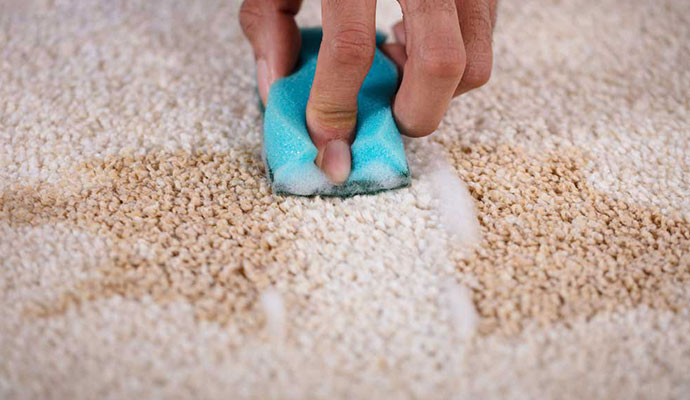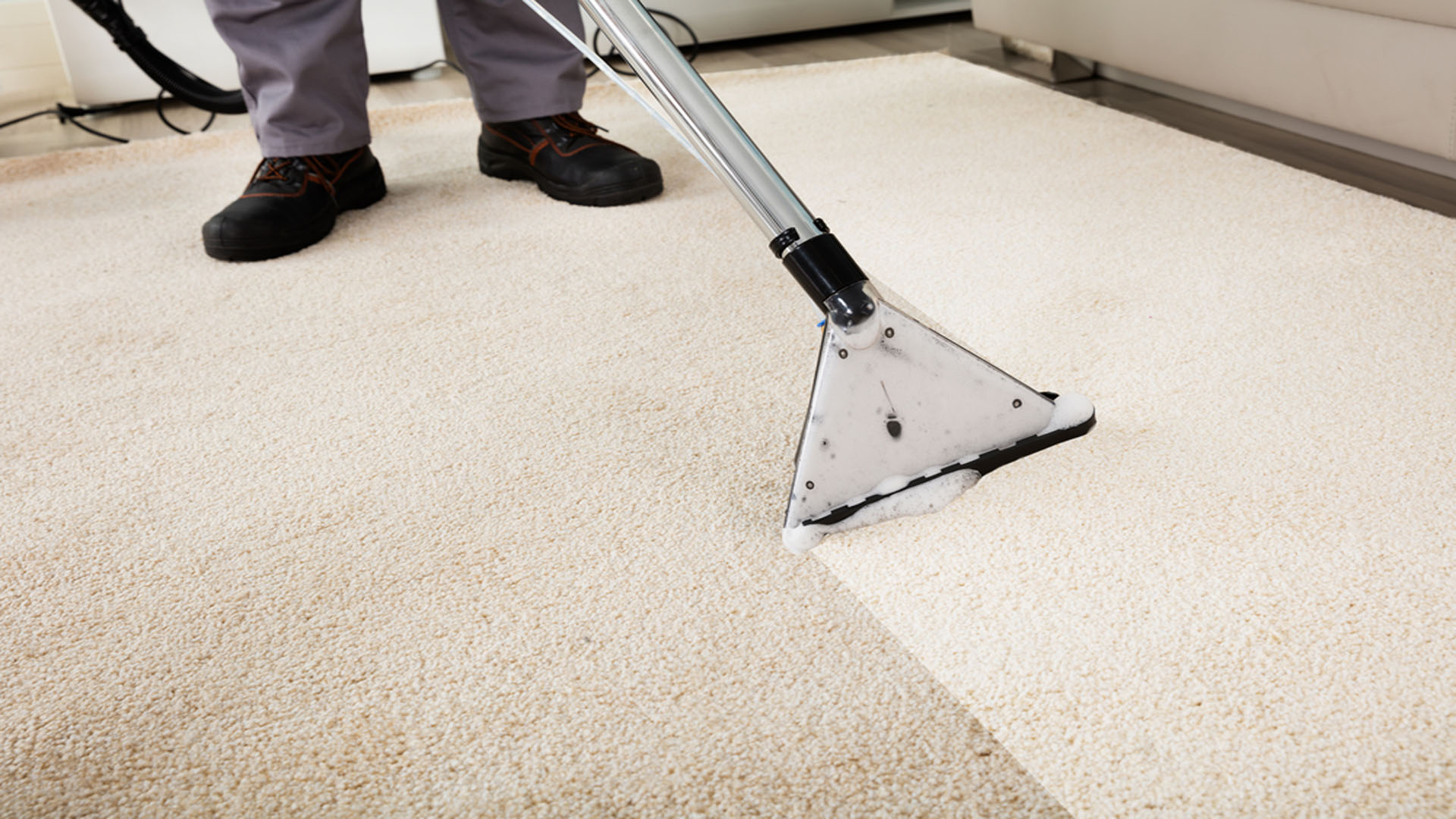
Why Does My Carpet Smell Like Mildew?
Mildew smells in carpets are usually caused by moisture trapped in the fibers. This can happen after a spill, a water leak, or exposure to high humidity. Carpets are absorbent, and if moisture isn’t dried out quickly, it can lead to the growth of mold and mildew deep within the fibers. According to the EPA, mold can develop in damp environments within 24-48 hours, which is why addressing wet carpets promptly is so important.
Common causes of mildew smells in carpets include:
- Water damage: Carpets soaked by flooding, spills, or leaks may trap moisture, leading to mildew growth.
- High humidity: In humid climates or homes with poor ventilation, carpets may absorb moisture from the air, contributing to musty smells.
- Improper drying: If a carpet isn’t thoroughly dried after cleaning or a spill, moisture may linger, encouraging mildew.
For more insights on how moisture leads to mold and mildew, check out this guide from the CDC on dampness and mold in homes.
How to Get Mildew Smell Out of Carpet: Step-by-Step Solutions

Getting rid of that unpleasant mildew odor from your carpet requires proper cleaning techniques and a little elbow grease. Here’s a step-by-step guide to removing mildew smell from your carpet:
| Step | How to Do It |
|---|---|
| 1. Dry the Carpet Thoroughly | First and foremost, make sure your carpet is completely dry. Use fans, a dehumidifier, or even a wet/dry vacuum to remove any remaining moisture. Moisture is the primary cause of mildew, so drying out the carpet is essential before tackling the smell. |
| 2. Sprinkle Baking Soda Over the Carpet | Baking soda is a natural odor absorber and works wonders for eliminating musty smells. Sprinkle a generous amount of baking soda over the affected areas of your carpet. Let it sit for several hours, or even overnight, to absorb the odor. Afterward, vacuum the carpet thoroughly to remove the baking soda and any loosened mildew particles. |
| 3. Use White Vinegar Solution | White vinegar is a powerful, natural mold killer and deodorizer. Mix one part white vinegar with two parts water in a spray bottle and lightly mist the affected area. Be careful not to oversaturate the carpet, as you don’t want to introduce more moisture. Let the vinegar solution sit for 10-15 minutes before blotting with a clean, dry cloth. The vinegar will neutralize the mildew smell and help kill any lingering spores. |
| 4. Try an Enzyme Cleaner | If baking soda and vinegar aren’t enough, you can use an enzyme-based cleaner, which is designed to break down organic matter (like mildew) and eliminate odors. Enzyme cleaners are available at most home improvement stores or online. Follow the manufacturer’s instructions to apply the cleaner to the mildew-affected areas, and let it work its magic. |
| 5. Steam Clean the Carpet | For deep cleaning, a steam cleaner can help lift mildew and remove odor from deep within the carpet fibers. If you don’t own a steam cleaner, you can rent one from many hardware or grocery stores. Use the machine according to the instructions, and be sure to thoroughly dry the carpet afterward to prevent new mildew from forming. |
| 6. Use an Air Purifier | After cleaning the carpet, consider running an air purifier with a HEPA filter to help remove any airborne mildew spores. This will improve the overall air quality in your home and reduce the chance of mold spores settling back into your carpet. |
If the mildew smell persists after these steps, it could be a sign of a deeper mold issue. In such cases, it’s best to call in professionals like Citywide Mold Mitigation to ensure your home is mold-free.
How to Prevent Mildew Smell in Carpets

Prevention is key to avoiding the hassle of removing mildew smells from your carpet. Here are some effective steps to prevent mildew from developing in the first place:
1. Control Humidity Levels
Maintaining a low-humidity environment is crucial to preventing mildew. Use a dehumidifier to keep indoor humidity levels below 50%. This will help stop moisture from seeping into your carpet. For guidance on choosing a dehumidifier, check out this guide from Consumer Reports.
2. Dry Spills Immediately
If there’s a spill or leak on your carpet, dry it immediately to prevent moisture from soaking into the fibers. Use towels, fans, and even a wet/dry vacuum to ensure the area is thoroughly dried. Mold can begin growing within 24-48 hours of exposure to moisture, so prompt action is key.
3. Improve Ventilation
Proper airflow can reduce the chances of mildew developing in your carpet. Open windows and doors to allow fresh air to circulate through the room. If your home is particularly prone to high humidity, consider installing an exhaust fan to improve air circulation and keep the space dry.
4. Clean Your Carpet Regularly
Regular vacuuming and professional carpet cleaning can help remove moisture, dirt, and mold spores before they turn into a bigger problem. Make sure to clean your carpet at least once a year, and consider steam cleaning for a deep clean.
When to Call Citywide Mold Mitigation for Help

In some cases, a mildew smell in your carpet could indicate a deeper mold issue within your home. If the smell persists despite your cleaning efforts, or if you notice mold growth spreading to other areas, it’s time to call in a professional.
Citywide Mold Mitigation offers expert mold removal and remediation services to keep your home safe and healthy. Our team of professionals will inspect your home for mold, eliminate the problem, and provide long-term solutions to prevent it from returning. Contact us today to schedule an inspection and take control of your home’s air quality.
FAQ
| Question | Answer |
|---|---|
| What causes mildew smells in carpets? | Mildew smells in carpets are caused by moisture trapped in the fibers. This can happen due to spills, leaks, or high humidity, leading to the growth of mold and mildew. |
| Can I use bleach to remove mildew from my carpet? | It’s not recommended to use bleach on carpets, as it can damage the fibers and cause discoloration. Instead, use natural alternatives like baking soda, white vinegar, or enzyme-based cleaners. |
| How long does it take for mildew to grow on a wet carpet? | Mildew can begin growing on a wet carpet within 24-48 hours if the moisture isn’t properly dried. This is why it’s crucial to address spills and water damage quickly. |
| How can I prevent mildew from coming back? | To prevent mildew from returning, keep humidity levels low, dry spills immediately, improve ventilation, and clean your carpet regularly. |
| When should I call a professional for help? | If the mildew smell persists after cleaning or if you suspect mold growth in other areas of your home, it’s best to contact a professional mold remediation service like Citywide Mold Mitigation. |
If you’re dealing with persistent mildew smells or suspect mold in your carpet, reach out to Citywide Mold Mitigation for professional mold removal services to keep your home safe and fresh.

